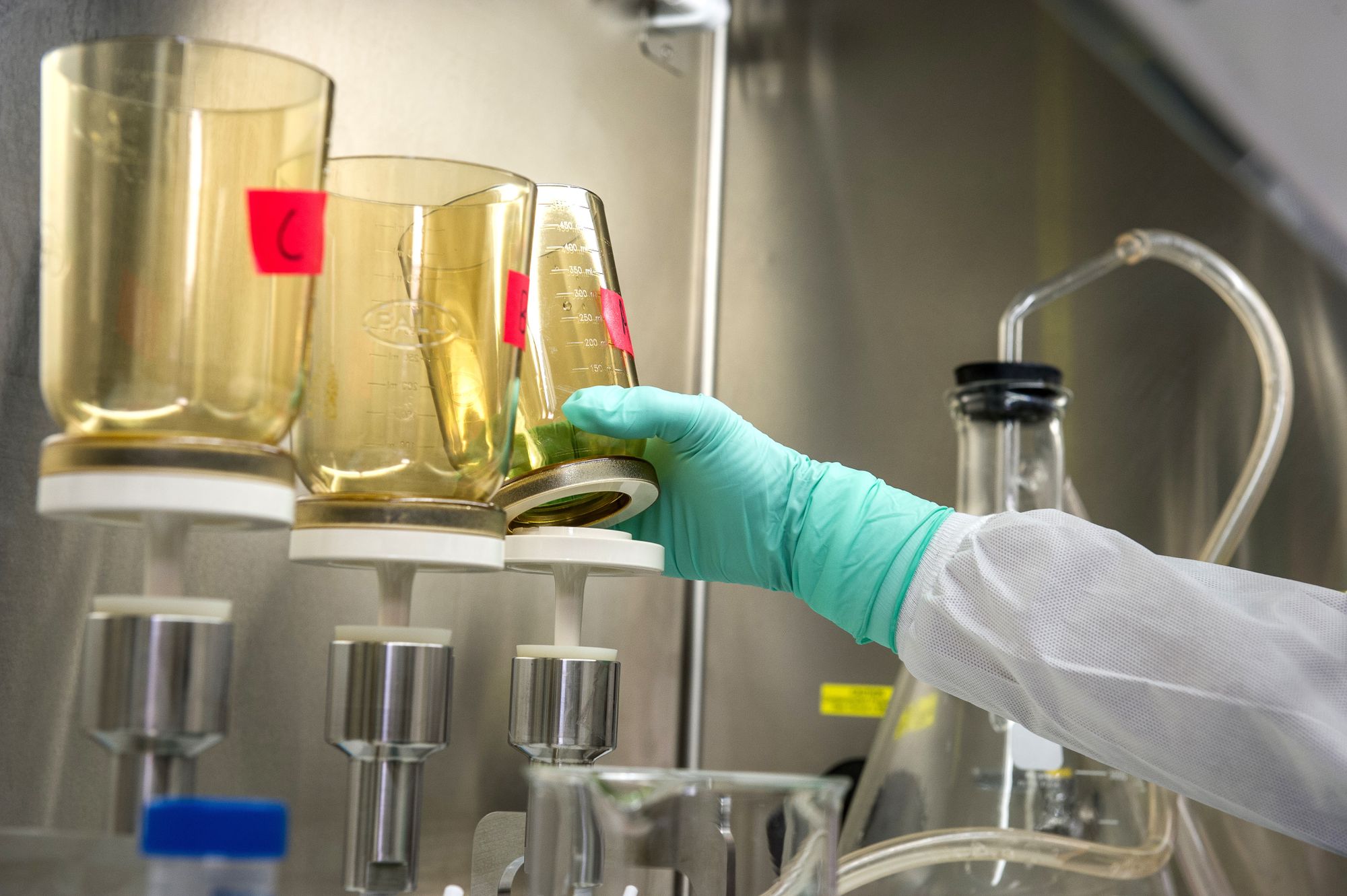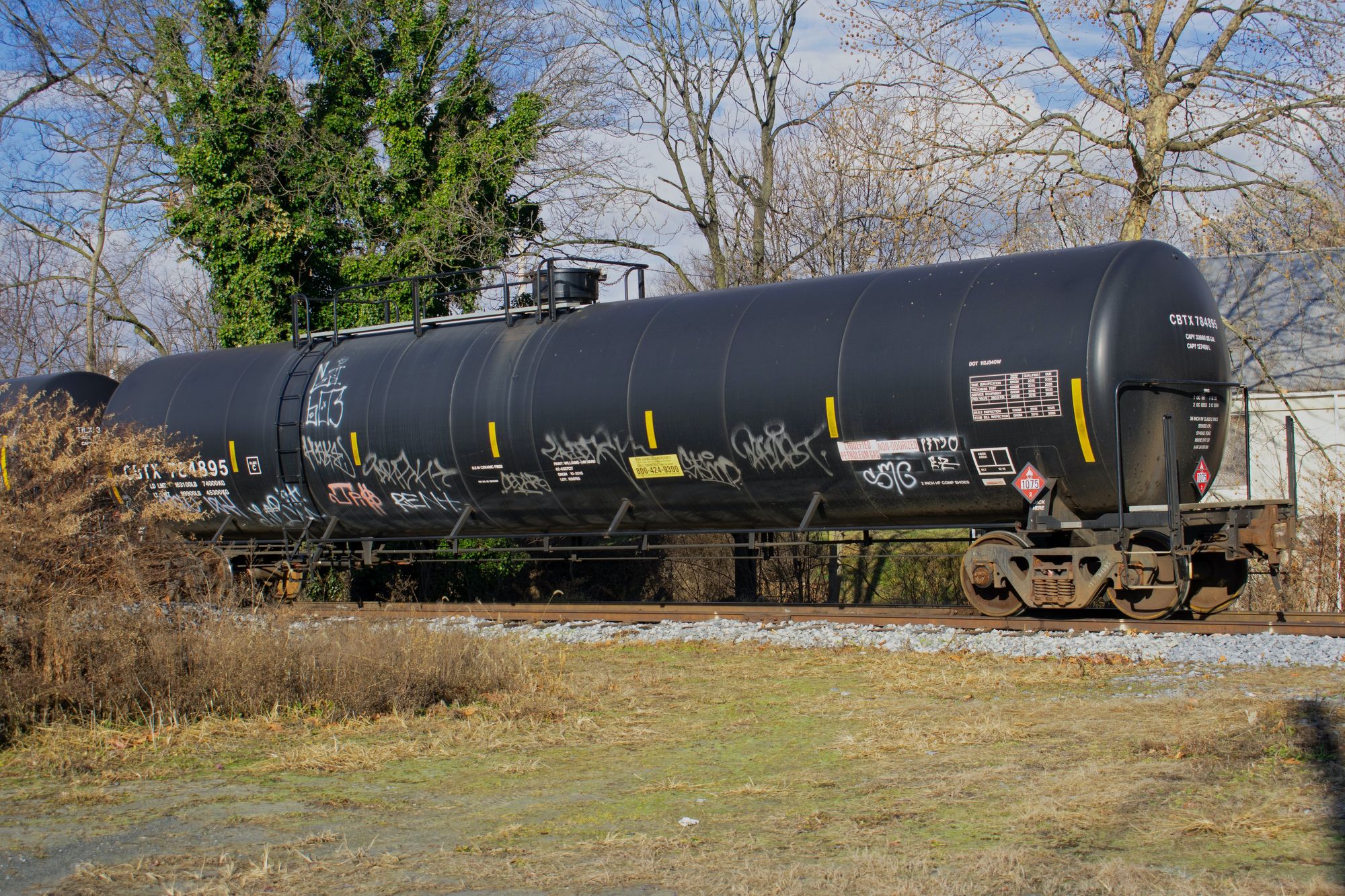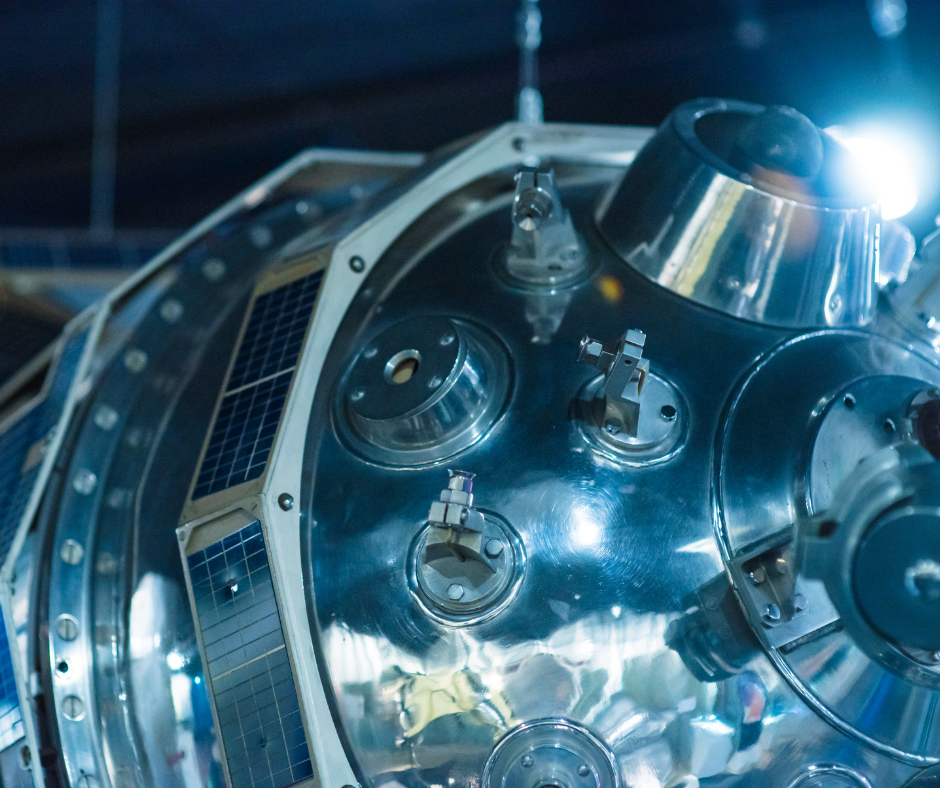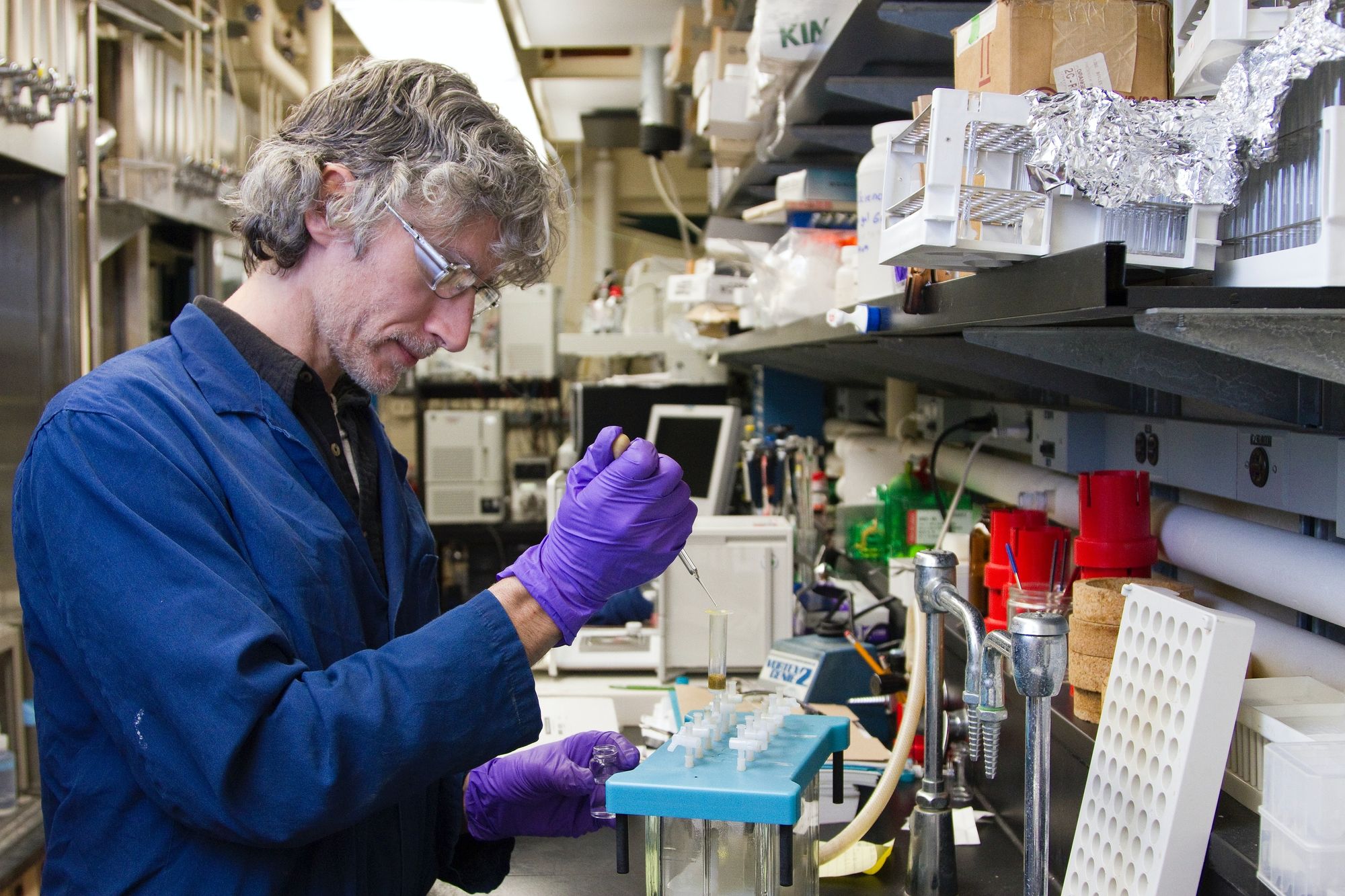Are you tired of the same old chemical production processes that drain your resources, drive up costs, and leave you feeling stuck in a rut? Well, it's time to shake things up and re-engineer your production processes for maximum benefits!
Re-engineering refers to the process of redesigning and optimizing existing processes to improve efficiency, reduce costs, and enhance product quality. Re-engineering can lead to significant benefits for chemical manufacturers, including increased profitability, improved competitiveness, and reduced environmental impact.

This article will explore the benefits of re-engineering existing chemical production processes and how it can help manufacturers address industry challenges. Specifically, we will focus on process optimization, waste reduction, and sustainability benefits.
Here's what we shall cover in this post:
- Need for Re-Engineering Chemical Production Processes
- Identifying Opportunities for Optimization
- Importance of Data Analysis in Re-Engineering
- Factors to Consider When Re-Engineering
- Role of Technology in Chemical Production Optimization
- Best Practices for Re-Engineering Chemical Production
- Future Trends in Chemical Production Optimization
- Conclusion
- Key Takeaways
Need for Re-Engineering Chemical Production Processes
Chemical production processes are vital to the chemical industry, supplying various products used in everyday life. However, these processes can often become inefficient or outdated over time, leading to cost, productivity, and environmental issues. This is where re-engineering comes into play.
Re-engineering is the process of analyzing and redesigning a system to improve its performance, efficiency, and quality. When applied to chemical production processes, it can help companies to optimize their operations, reduce costs, and improve sustainability. Here are some reasons why re-engineering is needed in chemical production:
- Outdated Processes: Chemical production processes can become outdated over time, leading to inefficiencies, higher costs, and potential safety risks. Re-engineering can modernize processes, incorporate new technologies, and streamline operations.
- Changing Market Conditions: The chemical industry is constantly evolving, and companies need to adapt to changes in market conditions. Re-engineering can ensure that production processes remain relevant and competitive.
- Environmental Regulations: Environmental regulations are becoming increasingly stringent, and chemical companies need to minimize their environmental impact. Re-engineering helps identify areas where processes can be made more sustainable, such as reducing energy consumption or waste generation.
- Cost Reduction: Chemical production can be costly, and re-engineering can help identify ways to reduce costs without compromising quality or safety.
- Increased Efficiency: Re-engineering can help increase chemical production processes' efficiency, allowing companies to produce more with less.
- Improved Quality: Re-engineering can help improve chemical product quality by identifying areas where processes can be optimized to ensure consistency and reliability.
- Innovation: Re-engineering can help to stimulate innovation by encouraging the use of new technologies and methods, which can lead to the development of new and improved chemical products.
Identifying Opportunities for Optimization
Re-engineering chemical production processes involves identifying and optimizing opportunities that can help companies reduce costs, increase efficiency, and improve product quality. Here are some key areas to consider when identifying these opportunities:
Production Process Analysis
Conducting a comprehensive analysis of the current production process can help identify areas for improvement. This includes evaluating factors such as production capacity, raw material usage, energy consumption, and waste generation.
By analyzing the entire process, companies can identify inefficiencies and potential areas for optimization.
Technology Upgrades
Technology is advancing rapidly, and upgrading equipment and machinery can significantly improve production efficiency. Upgrades can also help reduce maintenance costs and energy consumption. Companies should explore available technologies to identify potential upgrades that can optimize their production processes.
Inventory Management
Managing inventory is critical to ensure that the company has the necessary materials for production while minimizing waste and obsolete stock. The implementation of a just-in-time (JIT) inventory system can help reduce inventory levels and increase efficiency.
Waste Reduction
Waste reduction is a critical area for optimization in chemical production processes. Reducing waste can help companies save on disposal costs and minimize environmental impact.
Companies can identify waste reduction opportunities by analyzing the entire production process and identifying areas where waste can be minimized.
Energy Optimization
Energy is a significant cost driver in chemical production processes. Companies can optimize energy consumption by implementing energy-efficient technologies and practices such as heat recovery systems and efficient lighting.
Employee Training
Employee training is essential to ensure that employees understand the optimized processes and can operate equipment safely and efficiently. Ongoing training can also help employees identify opportunities for further optimization and improve the overall efficiency of the production process.
Importance of Data Analysis in Re-Engineering
Here are some points that highlight the importance of data analysis in re-engineering chemical production processes:
- Identifying inefficiencies: Data analysis can help identify inefficiencies in the production process, such as bottlenecks, downtime, or equipment failures. By analyzing the data, the production team can pinpoint the root cause of the problem and implement changes to address it.
- Optimizing production schedules: By analyzing production data, it is possible to optimize the production schedule to reduce downtime, improve throughput, and minimize the risk of equipment failure. This can lead to significant cost savings by increasing production efficiency.
- Improving product quality: Data analysis can help identify the factors that affect product quality, such as temperature, pressure, or chemical composition. By analyzing this data, the production team can adjust the process parameters to optimize product quality, reduce waste, and minimize rework.
- Reducing waste: Data analysis can help identify waste areas in production, such as excess raw materials or energy consumption. The production team can identify opportunities to reduce waste and improve efficiency by analyzing the data, leading to cost savings and environmental benefits.
- Continuous improvement: Data analysis can help identify areas of improvement in the production process, allowing for continuous improvement and optimization. This can lead to ongoing cost savings and efficiency improvements over time.
Factors to Consider When Re-Engineering
Re-engineering chemical production processes is essential to improve chemical manufacturing companies' efficiency and productivity. However, this task requires careful consideration of various factors to ensure successful re-engineering.
Here are some factors that should be considered when re-engineering chemical production processes:
Safety
The safety of employees, equipment, and the environment is paramount when re-engineering chemical production processes. Any changes made must be thoroughly evaluated to ensure they do not compromise safety.
Process Flow
An efficient process flow is critical in chemical production. The process flow must be optimized to ensure smooth production and eliminate unnecessary steps that can cause delays and increase costs.
Equipment and Technology
Selecting appropriate equipment and technology is crucial in re-engineering chemical production processes. The equipment should be efficient, reliable, and safe to use. The technology should be up-to-date and capable of meeting production needs.
Resource Management
Efficiently managing raw materials, energy, and water resources is crucial in chemical production. The re-engineering process must aim to optimize resource usage and minimize waste.
Cost-effectiveness
Re-engineering chemical production processes should aim to reduce costs while maintaining product quality. The costs of implementing the changes should be weighed against the potential savings to ensure cost-effectiveness.
Regulatory Compliance
Chemical production is subject to strict regulations to ensure the safety of employees and the environment. Re-engineering should aim to comply with these regulations to avoid penalties and maintain a good reputation.
Role of Technology in Chemical Production Optimization
Here are some of the ways technology can help optimize chemical production:
- Process automation: Automation technology can be used to control and monitor chemical production processes, reducing the risk of human error and improving accuracy. Automation can also optimize production by adjusting process parameters in real time based on data analysis.
- Advanced analytics: Advanced analytics tools can help chemical companies to analyze large amounts of data from various sources, including sensors, equipment, and production processes. By analyzing this data, companies can identify inefficiencies and opportunities for optimization.
- Simulation software: Simulation software allows chemical companies to model their production processes and test various scenarios without changing their physical processes. This helps to identify potential improvements and optimize processes before implementing changes.
- Internet of Things (IoT): IoT technology can be used to monitor and control equipment, track inventory, and monitor environmental conditions in real time. This can help chemical companies to improve efficiency and reduce waste.
- Artificial Intelligence (AI): AI technology can analyze large amounts of data and identify patterns that may not be immediately apparent to humans. This can help chemical companies identify optimization opportunities and improve production efficiency.
By incorporating these technologies into their production processes, chemical companies can optimize their operations, reduce costs, and improve overall efficiency. However, it is important for companies to carefully evaluate their specific needs and determine which technologies are most suitable for their operations.
Best Practices for Re-Engineering Chemical Production
Below are some best practices for re-engineering chemical production processes:
- Conduct a thorough analysis of the existing process: Before embarking on re-engineering the chemical production process, it is essential to analyze the current process thoroughly. This analysis will help identify the bottlenecks, inefficiencies, and areas that require optimization.
- Identify the goals of re-engineering: It is essential to have a clear understanding of the goals of the re-engineering process. This could include reducing costs, improving efficiency, enhancing product quality, or reducing waste. Having clear goals will guide the re-engineering process and help measure its success.
- Implement lean manufacturing principles: Lean manufacturing principles can help reduce waste, improve efficiency, and optimize production. These principles include identifying value, mapping the value stream, creating flow, establishing pull, and pursuing perfection.
- Use advanced process control systems: Advanced process control systems can help optimize chemical production processes by automating routine tasks, monitoring process variables in real time, and making adjustments to the process as needed.
- Consider new technologies: New technologies such as artificial intelligence, machine learning, and the internet of things can help optimize chemical production processes. These technologies can improve efficiency, reduce costs, and enhance product quality.
- Involve all stakeholders: Re-engineering the chemical production process requires the involvement of all stakeholders, including employees, management, suppliers, and customers. This collaboration will help ensure that the re-engineering process meets the needs of all stakeholders.
- Monitor and measure performance: It is essential to monitor and measure the re-engineered process's performance continuously. This monitoring will help identify areas that require further optimization and ensure that the re-engineered process meets its goals.
Future Trends in Chemical Production Optimization
Here are some future trends in chemical production optimization:
- Digitalization and automation: The use of advanced technologies such as artificial intelligence, machine learning, and the Internet of Things (IoT) will continue to increase chemical production. Digitalization can enable real-time monitoring and control of production processes, improving efficiency and reducing waste.
- Renewable energy: With the global shift towards sustainability, chemical manufacturers are exploring using renewable energy sources such as solar, wind, and biomass to power their production processes. This can help reduce reliance on fossil fuels and lower carbon emissions.
- Circular economy: The circular economy is an emerging model that aims to keep resources in use for as long as possible and reduce waste. In chemical production, this could involve designing products and processes that enable the recovery and reuse of materials, reducing waste, and conserving resources.
- Biotechnology: Biotechnology offers opportunities to produce chemicals through sustainable and environmentally friendly processes. Biologically-based production processes have the potential to reduce energy consumption, minimize waste, and improve product quality.
- Additive manufacturing: Additive manufacturing, or 3D printing, is a rapidly advancing technology that has the potential to transform chemical production. It enables the production of complex and customized parts and products with reduced material waste, faster production times, and lower costs.
- Modular and flexible production: Modular production systems, which involve the use of smaller, self-contained production units that can be easily connected or disconnected, offer greater flexibility and can help reduce production costs. They also enable manufacturers to respond quickly to changing market demands.
- Collaborative innovation: Collaboration and partnerships between chemical manufacturers, suppliers, and customers can lead to more innovative and efficient production processes. Such collaborations involve sharing resources, expertise, and knowledge, leading to more sustainable and cost-effective production.
How Deskera Can Assist You?
Deskera MRP allows you to closely monitor the manufacturing process. From the bill of materials to the production planning features, the solution helps you stay on top of your game and keep your company's competitive edge.

Deskera ERP and MRP system can help you:
- Manage production plans
- Maintain Bill of Materials
- Generate detailed reports
- Create a custom dashboard
Deskera ERP is a comprehensive system that allows you to maintain inventory, manage suppliers, and track supply chain activity in real-time, as well as streamline a variety of other corporate operations.
Deskera Books enables you to manage your accounts and finances more effectively. Maintain sound accounting practices by automating accounting operations such as billing, invoicing, and payment processing.
Deskera CRM is a strong solution that manages your sales and assists you in closing agreements quickly. It not only allows you to do critical duties such as lead generation via email, but it also provides you with a comprehensive view of your sales funnel.
Deskera People is a simple tool for taking control of your human resource management functions. The technology not only speeds up payroll processing but also allows you to manage all other activities such as overtime, benefits, bonuses, training programs, and much more. This is your chance to grow your business, increase earnings, and improve the efficiency of the entire production process.
Conclusion
Re-engineering existing chemical production processes can offer a multitude of benefits for chemical manufacturers. By analyzing and identifying areas for improvement, manufacturers can optimize production processes to reduce costs, increase efficiency, and improve product quality.
Re-engineering can also help manufacturers stay competitive in the market by incorporating new technology and processes to keep up with changing industry trends.
Furthermore, re-engineering can lead to sustainability gains by reducing waste and energy consumption and minimizing the production process's environmental impact. Overall, the benefits of re-engineering existing chemical production processes are numerous, and manufacturers should consider this approach as a viable option for achieving long-term success in the industry.
Key Takeaways
- Improved safety measures can be implemented through re-engineering, reducing the risk of accidents, and ensuring the safety of workers and the surrounding environment.
- Sustainability gains can be achieved through re-engineering, including reducing waste and energy consumption and minimizing the environmental impact of the production process.
- The re-engineering process can also improve quality control and product consistency, resulting in higher customer satisfaction and greater brand reputation.
- By streamlining processes, manufacturers can reduce the need for manual labor and improve the overall efficiency of their production process.
- Implementing new technology and process improvements can also help manufacturers comply with regulatory standards and industry guidelines.
- Re-engineering can improve supply chain management, reduce lead times, and improve inventory management.
- Implementing new technology can also lead to greater automation, reducing the need for manual intervention and improving overall efficiency.
Related Articles













